- About
- Mission Statement
Education. Evidence. Regrowth.
- Education.
Prioritize knowledge. Make better choices.
- Evidence.
Sort good studies from the bad.
- Regrowth.
Get bigger hair gains.
Team MembersPhD's, resarchers, & consumer advocates.
- Rob English
Founder, researcher, & consumer advocate
- Research Team
Our team of PhD’s, researchers, & more
Editorial PolicyDiscover how we conduct our research.
ContactHave questions? Contact us.
Before-Afters- Transformation Photos
Our library of before-after photos.
- — Jenna, 31, U.S.A.
I have attached my before and afters of my progress since joining this group...
- — Tom, 30, U.K.
I’m convinced I’ve recovered to probably the hairline I had 3 years ago. Super stoked…
- — Rabih, 30’s, U.S.A.
My friends actually told me, “Your hairline improved. Your hair looks thicker...
- — RDB, 35, New York, U.S.A.
I also feel my hair has a different texture to it now…
- — Aayush, 20’s, Boston, MA
Firstly thank you for your work in this field. I am immensely grateful that...
- — Ben M., U.S.A
I just wanted to thank you for all your research, for introducing me to this method...
- — Raul, 50, Spain
To be honest I am having fun with all this and I still don’t know how much...
- — Lisa, 52, U.S.
I see a massive amount of regrowth that is all less than about 8 cm long...
Client Testimonials150+ member experiences.
 Scroll DownPopular Treatments
Scroll DownPopular Treatments- Treatments
Popular treatments. But do they work?
- Finasteride
- Oral
- Topical
- Dutasteride
- Oral
- Topical
- Mesotherapy
- Minoxidil
- Oral
- Topical
- Ketoconazole
- Shampoo
- Topical
- Low-Level Laser Therapy
- Therapy
- Microneedling
- Therapy
- Platelet-Rich Plasma Therapy (PRP)
- Therapy
- Scalp Massages
- Therapy
More
IngredientsTop-selling ingredients, quantified.
- Saw Palmetto
- Redensyl
- Melatonin
- Caffeine
- Biotin
- Rosemary Oil
- Lilac Stem Cells
- Hydrolyzed Wheat Protein
- Sodium Lauryl Sulfate
More
ProductsThe truth about hair loss "best sellers".
- Minoxidil Tablets
Xyon Health
- Finasteride
Strut Health
- Hair Growth Supplements
Happy Head
- REVITA Tablets for Hair Growth Support
DS Laboratories
- FoliGROWTH Ultimate Hair Neutraceutical
Advanced Trichology
- Enhance Hair Density Serum
Fully Vital
- Topical Finasteride and Minoxidil
Xyon Health
- HairOmega Foaming Hair Growth Serum
DrFormulas
- Bio-Cleansing Shampoo
Revivogen MD
more
Key MetricsStandardized rubrics to evaluate all treatments.
- Evidence Quality
Is this treatment well studied?
- Regrowth Potential
How much regrowth can you expect?
- Long-Term Viability
Is this treatment safe & sustainable?
Free Research- Free Resources
Apps, tools, guides, freebies, & more.
- Topical Finasteride Calculator
- Interactive Guide: What Causes Hair Loss?
- Free Guide: Standardized Scalp Massages
- 7-Day Hair Loss Email Course
- Ingredients Database
- Interactive Guide: Hair Loss Disorders
- Treatment Guides
- Product Lab Tests: Purity & Potency
- Evidence Quality Masterclass
More
Articles100+ free articles.
-
Cannabidiol (CBD) Increases Hair Counts By 246%? Not So Fast.
-
Creatine: Does It Worsen Hair Loss? It Depends On The Hair Loss Type.
-
Can Progesterone Improve Hair Regrowth?
-
CRABP2: Can This Gene Predict Regrowth From Retinoids?
-
BTD: Can This Gene Predict Regrowth From Biotin?
-
COL1A1: Can This Gene Predict Regrowth From Collagen Support?
-
2dDR For Hair Loss: What Do We Know So Far About This Sugar?
-
CYP19A1: Can This Gene Predict Regrowth From Hormone Therapy?
PublicationsOur team’s peer-reviewed studies.
- Microneedling and Its Use in Hair Loss Disorders: A Systematic Review
- Use of Botulinum Toxin for Androgenic Alopecia: A Systematic Review
- Conflicting Reports Regarding the Histopathological Features of Androgenic Alopecia
- Self-Assessments of Standardized Scalp Massages for Androgenic Alopecia: Survey Results
- A Hypothetical Pathogenesis Model For Androgenic Alopecia:Clarifying The Dihydrotestosterone Paradox And Rate-Limiting Recovery Factors
Menu- AboutAbout
- Mission Statement
Education. Evidence. Regrowth.
- Team Members
PhD's, resarchers, & consumer advocates.
- Editorial Policy
Discover how we conduct our research.
- Contact
Have questions? Contact us.
- Before-Afters
ArticlesWhy Am I Shedding After Starting Ketoconazole?
First Published Apr 19 2024Last Updated Oct 29 2024Pharmaceutical Researched & Written By:Sarah King, PhD
Researched & Written By:Sarah King, PhD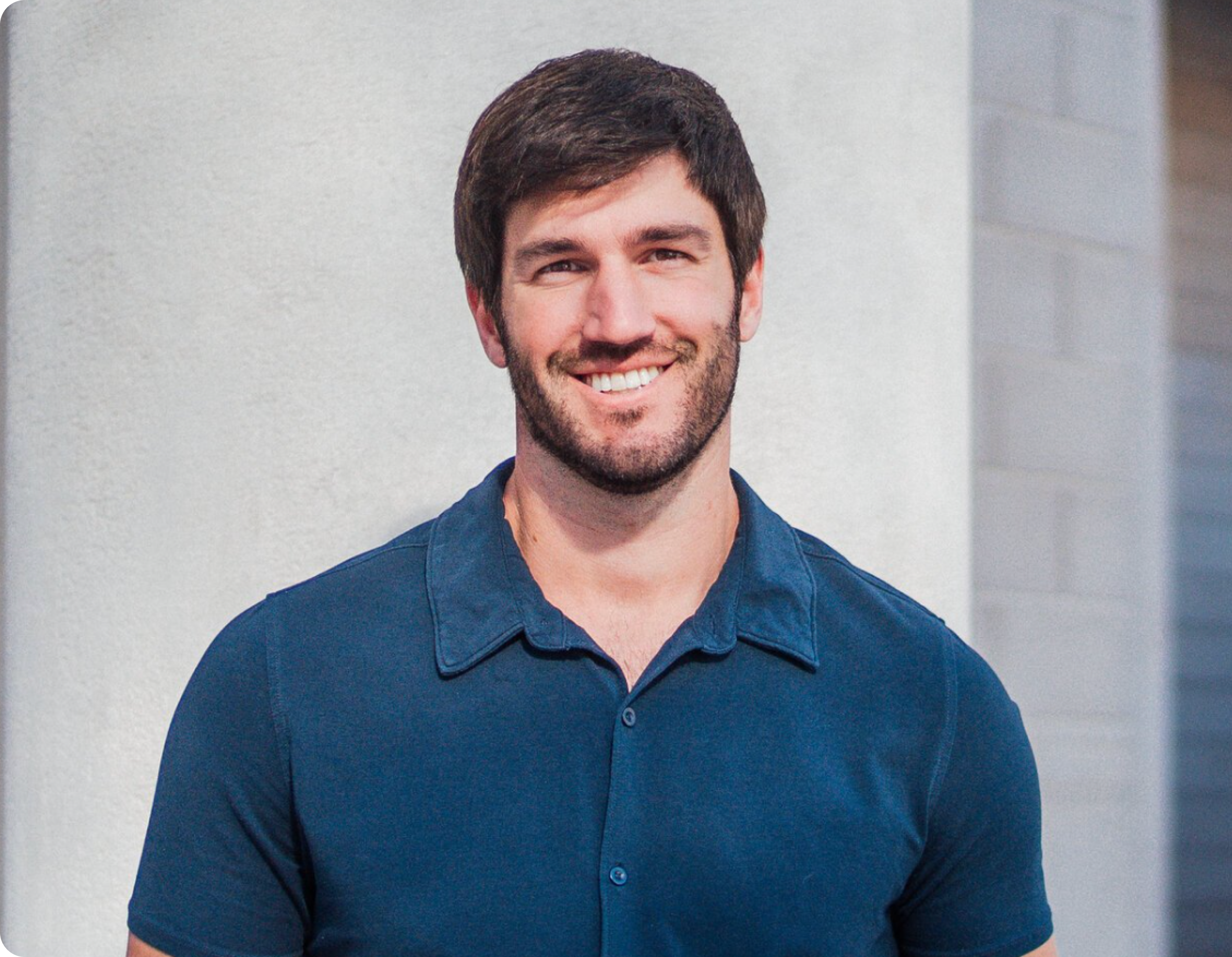 Reviewed By:Rob English, Medical Editor
Reviewed By:Rob English, Medical Editor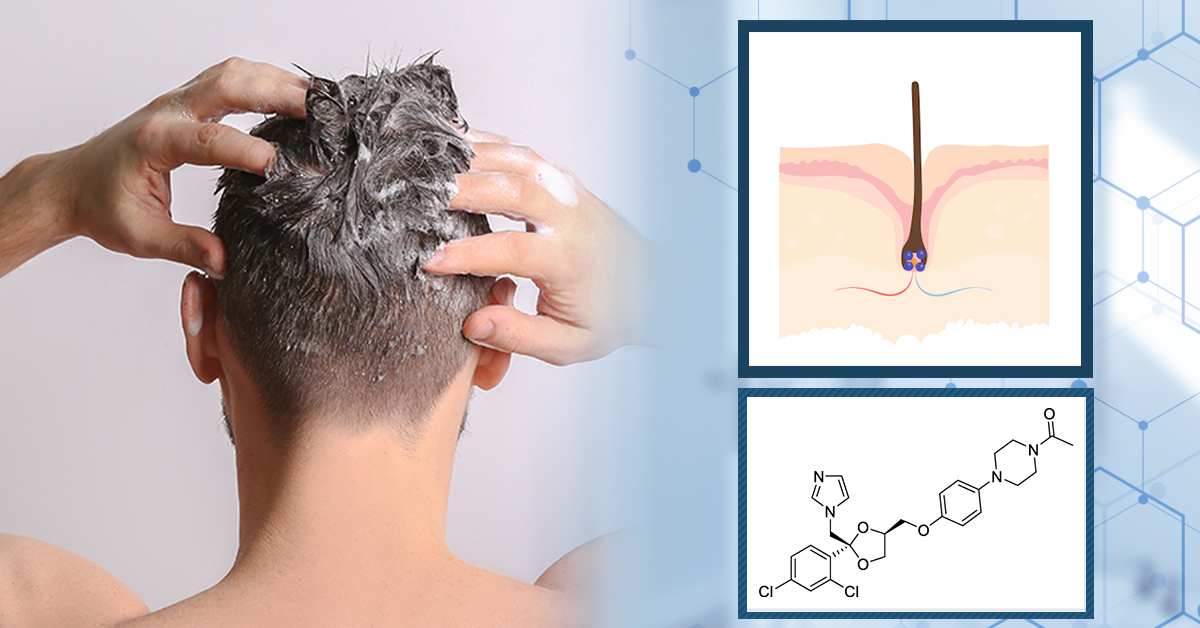
Want help with your hair regrowth journey?
Get personalized support, product recommendations, video calls, and more from our researchers, trichologists, and PhD's dedicated to getting you the best possible outcomes.
Learn MoreArticle Summary
Some people experience increased hair shedding after using ketoconazole shampoos or topicals. This can be due to several factors: treatment-induced hair shedding, a drug reaction, seasonal hair shedding, changes to other aspects of your hair growth regimen, ketoconazole overuse, scalp drying, & more. The solutions to resolving ketoconazole-induced hair shedding depend entirely on the underlying causes, but often include reducing the concentration, reducing the frequency, and/or using a conditioner to moisturize the hair. In this article, we will examine the causes and solutions for ketoconazole-related hair shedding.
Full Article
Ketoconazole is a versatile antifungal drug with widespread applications. It is commonly employed to address dandruff issues. It is also utilized off-label as a remedy for hair loss in both men and women, specifically targeting conditions like androgenic alopecia and telogen effluvium that result from an overgrowth of microorganisms on the scalp.
In this guide, we’ll delve into why you might be shedding after using ketoconazole, the difference between normal and abnormal shedding, solutions, and recommendations for those experiencing hair shedding.
What is Ketoconazole?
Ketoconazole is an antifungal medication that is typically used to treat a variety of fungal infections in the body; however, it is also used in the treatment of hair loss conditions like androgenic alopecia (AGA) and telogen effluvium (TE) in the form of topicals and shampoos. Some ketoconazole-based products formulated for hair loss are available over-the-counter (OTC), such as 1% ketoconazole shampoos. In some instances, healthcare professionals may recommend or prescribe stronger ketoconazole treatments.
How Does Ketoconazole Work?
Ketoconazole works as an antifungal agent by disrupting the cell membranes of fungi, inhibiting their growth and replication. The antifungal properties of ketoconazole can help to alleviate these scalp conditions by reducing fungal activity and inflammation. The potential benefit for hair loss conditions such as AGA and TE is that a healthier, less inflamed scalp can create a more favorable environment for hair growth.
Further research suggests that ketoconazole shampoo can reduce dihydrotestosterone (DHT) levels by inhibiting 5 alpha-reductase. Combined usage with finasteride may lead to a more complete treatment.[1]Perez, B.S.H. (2004). Ketoconazole as an adjunct to finasteride in the treatment of androgenetic alopecia in men. Medical Hypotheses. 62(1). 112-115. Available at: … Continue reading
What are the Possible Causes of Hair Shedding After Ketoconazole Use?
Hair shedding after ketoconazole treatment can be disconcerting, but it’s important to understand the potential reasons behind this phenomenon.
Initial Ketoconazole Use
If you have been using ketoconazole for 1-3 months and are experiencing shedding, it may be because the scalp is still adjusting (and responding) to new treatments. Therefore, it’s possible that some of your shedding is due to a positive treatment response.
Ketoconazole Side Effect
According to Nizoral, in rare cases, ketoconazole may cause “inflamed hair follicles, hair loss, or changes in hair texture”.[2]Nizoral, (no date). Nizoral Anti-Dandruff Shampoo Ketoconazole. Nizoral. Available at: https://www.medicines.org.uk/emc/files/pil.6456.pdf (Accessed: 25 October 2023) You can find out if the hair shedding experienced is due to ketoconazole if you are also experiencing scalp dryness, hair dryness, and itchiness. Furthermore, if scalp redness is also experienced, you may be experiencing an allergic reaction to the product.
Seasonal Shedding
Toward the middle and end of the summer, humans undergo a temporary uptick in shedding due to hair cycle seasonality. While this shedding is primarily unavoidable, it also shouldn’t interfere with the success of any long-term hair loss treatments. So, your current bout of shedding might relate more to seasonality than anything else.
Other Hair Loss Products
Sometimes, the shedding might not be from ketoconazole but rather from other recently added treatments. Treatments like minoxidil shorten the non-growing (telogen) phase, which induces the shedding of club telogen hairs, leading to an increase in hair shedding.[3]Shadi, Z. (2023). Compliance to Topical Minoxidil and Reasons for Discontinuation among Patients with Androgenetic Alopecia. Dermatology and Therapy (Heidelb). 13(5). 1157-1169. Available at: … Continue reading
Ketoconazole Overuse
Overusing ketoconazole can lead to irritation, scalp dryness, and hair loss. Therefore, when using a product such as this, you should use it only as often as recommended by the brand or your doctor.
The Difference between Normal Hair Shedding and Abnormal Hair Loss
Normal hair shedding and abnormal hair loss are distinct processes that can affect the health and appearance of your hair. Understanding their differences is crucial for maintaining good hair care and addressing potential issues.
Normal Shedding
We all shed scalp hair; it’s a normal part of the hair follicle cycle, with the average number of hairs shed daily ranging from 50-100 hairs.[4]American Academy of Dermatology, (no date). Do you have hair loss or hair shedding? American Academy of Dermatology. Available at: … Continue reading These hairs typically fall out with no discomfort or noticeable changes in hair density and do not result in visible thinning or bald spots.
Abnormal Shedding
In contrast, abnormal hair loss, alopecia, involves excessive or sudden hair loss beyond normal shedding. It can be caused by various factors, such as genetics, medical conditions, stress, hormonal changes, medication, or an improper diet.[5]Alessandrini, A., Bruni, F., Piraccini, B.M., Starace, M. (2021). Common causes of hair loss – clinical manifestations, trichoscopy, and therapy. JEADV. 35. 629-640. Available at: … Continue reading Abnormal hair loss often leads to noticeable thinning, receding hairlines, or bald patches. Recognizing and addressing the underlying cause of abnormal hair loss is essential for effective treatment and management.
Solutions and Recommendations for Those Experiencing Hair Shedding Due to Ketoconazole
If the ketoconazole shampoo is causing hair shedding with or without scalp irritation, you do not necessarily have to stop usage. The following solutions may help to reduce symptoms:
- Switch from 2% to 1% ketoconazole. This should reduce the “power” of ketoconazole and, thereby, its effect on the hair.
- Reduce ketoconazole’s usage frequency and/or scalp contact time. While ketoconazole shampoo is typically used 2-3 times weekly and left on the scalp for up to 15 minutes, these usage parameters can irritate many people’s scalps. The simplest way to troubleshoot this is to reduce your use. Opt for 1-2 times weekly ketoconazole shampooing and/or only leave in the shampoo for 2-5 minutes.
- Add in a conditioner. After shampooing with ketoconazole, add in a conditioner. This should help moisturize the scalp and hair, reducing any hair texture changes caused by scalp/hair dryness.
If you decide to make any of the above changes, it’s important to give it time to see if the shedding stops or reduces. Assessing the effects of any change in hair care products or routines typically takes several weeks.
If this does not resolve the hair shedding, consider stopping the shampoo and/or seeking help from our community.
References[+]
References ↑1 Perez, B.S.H. (2004). Ketoconazole as an adjunct to finasteride in the treatment of androgenetic alopecia in men. Medical Hypotheses. 62(1). 112-115. Available at: https://doi.org/10.1016/s0306-9877(03)00264-0 ↑2 Nizoral, (no date). Nizoral Anti-Dandruff Shampoo Ketoconazole. Nizoral. Available at: https://www.medicines.org.uk/emc/files/pil.6456.pdf (Accessed: 25 October 2023) ↑3 Shadi, Z. (2023). Compliance to Topical Minoxidil and Reasons for Discontinuation among Patients with Androgenetic Alopecia. Dermatology and Therapy (Heidelb). 13(5). 1157-1169. Available at: https://doi.org/10.1007/s13555-023-00919-x ↑4 American Academy of Dermatology, (no date). Do you have hair loss or hair shedding? American Academy of Dermatology. Available at: https://www.aad.org/public/diseases/hair-loss/insider/shedding#:~:text=It ‘s%20normal%20to%20shed%20between,this%20condition%20is%20telogen%20effluvium. (Accessed: 25 October 2023) ↑5 Alessandrini, A., Bruni, F., Piraccini, B.M., Starace, M. (2021). Common causes of hair loss – clinical manifestations, trichoscopy, and therapy. JEADV. 35. 629-640. Available at: https://doi.org/10.1111/jdv.17079 Want help with your hair regrowth journey?
Get personalized support, product recommendations, video calls, and more from our researchers, trichologists, and PhD's dedicated to getting you the best possible outcomes.
Learn More
Sarah King, PhD
Dr. Sarah King is a researcher & writer who holds a BSc in Medical Biology, an MSc in Forensic Biology, and a Ph.D. in Molecular and Cellular Biology. While at university, Dr. King’s research focused on cellular aging and senescence through NAD-dependent signaling – along with research into prostaglandins and their role in hair loss. She is a co-author on several upcoming manuscripts with the Perfect Hair Health team.
"... Can’t thank @Rob (PHH) and @sanderson17 enough for allowing me to understand a bit what was going on with me and why all these [things were] happening ... "
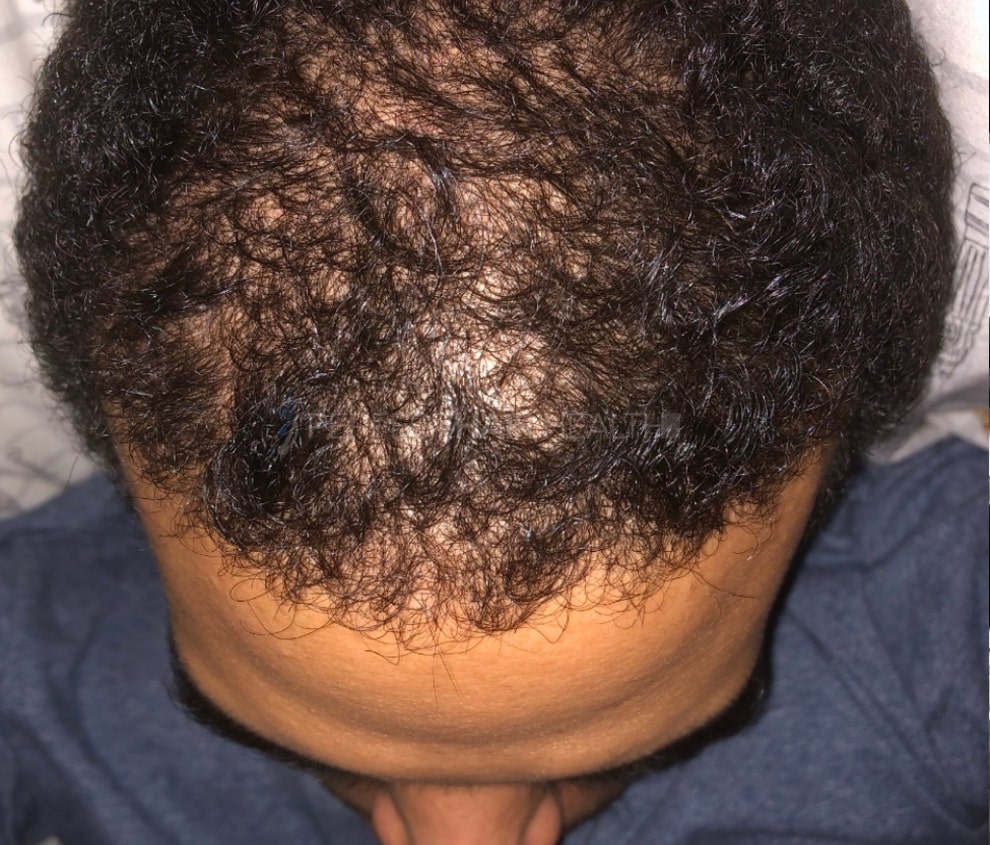
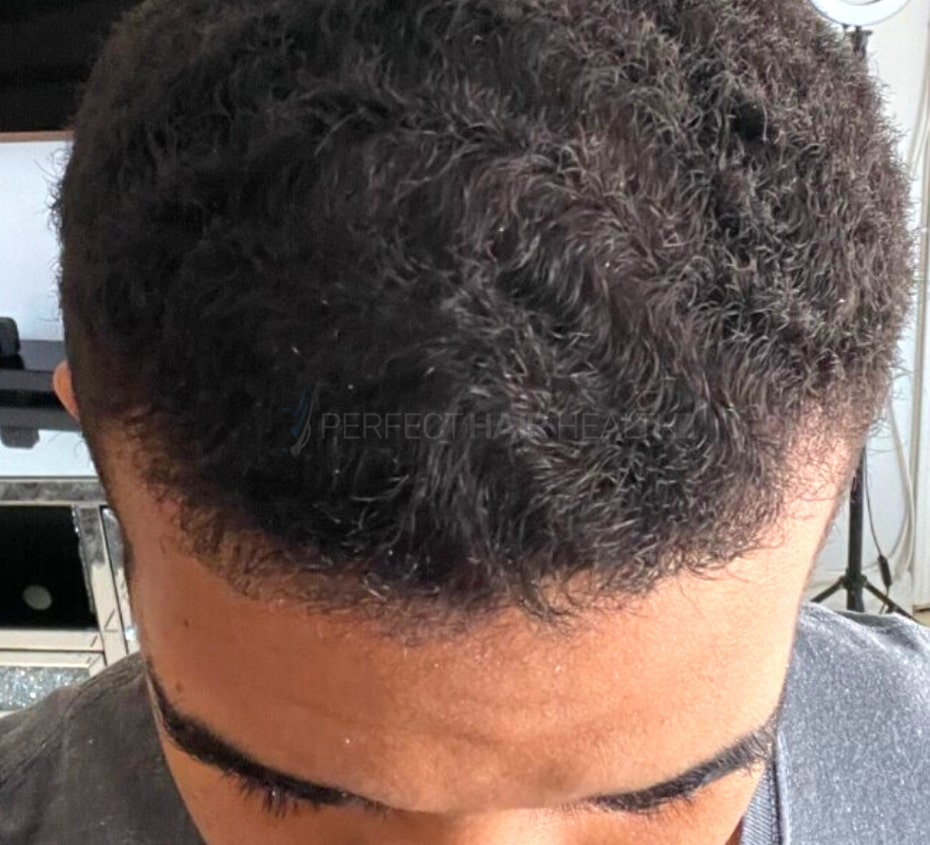 — RDB, 35, New York, U.S.A.
— RDB, 35, New York, U.S.A."... There is a lot improvement that I am seeing and my scalp feel alive nowadays... Thanks everyone. "
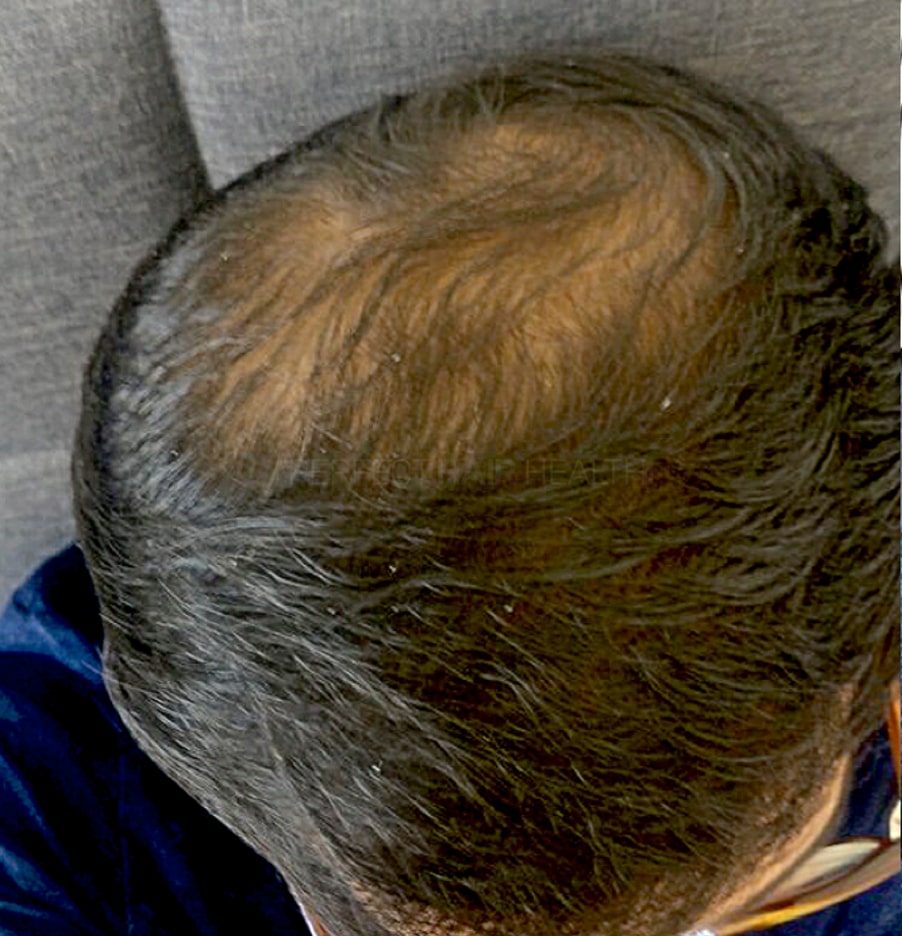
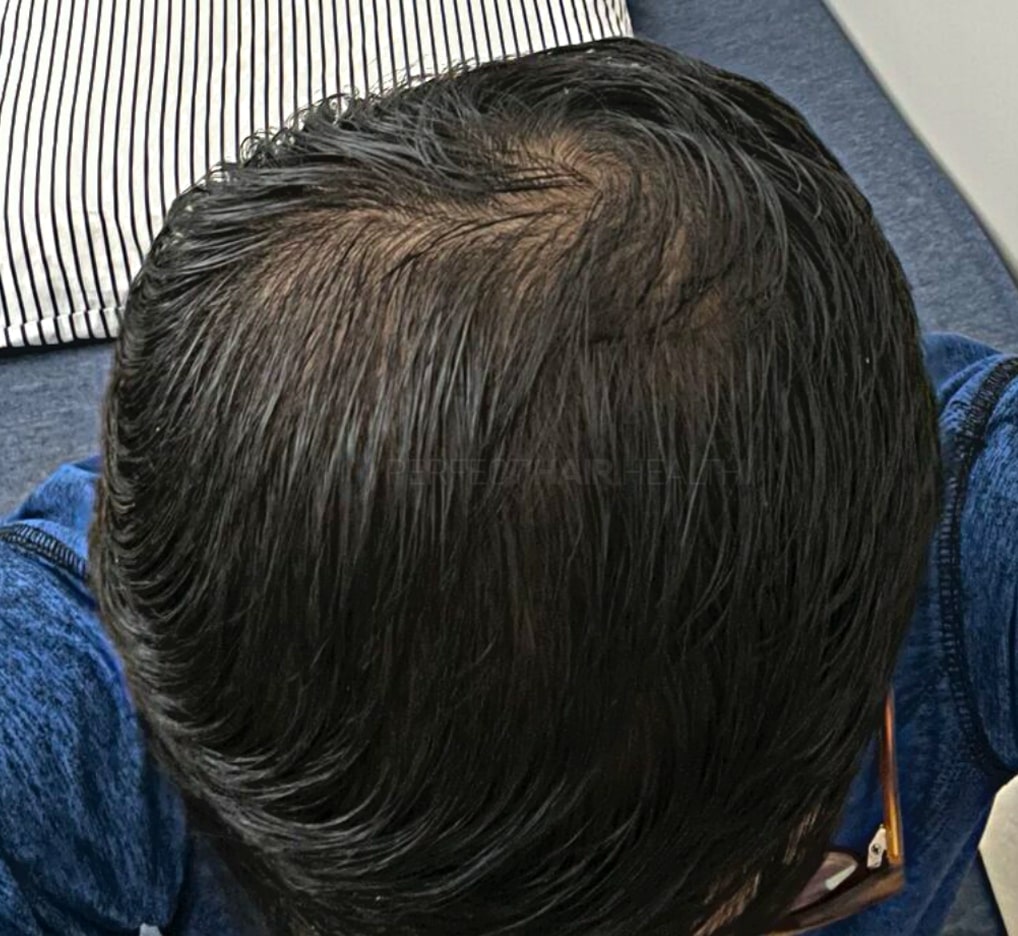 — Aayush, 20’s, Boston, MA
— Aayush, 20’s, Boston, MA"... I can say that my hair volume/thickness is about 30% more than it was when I first started."
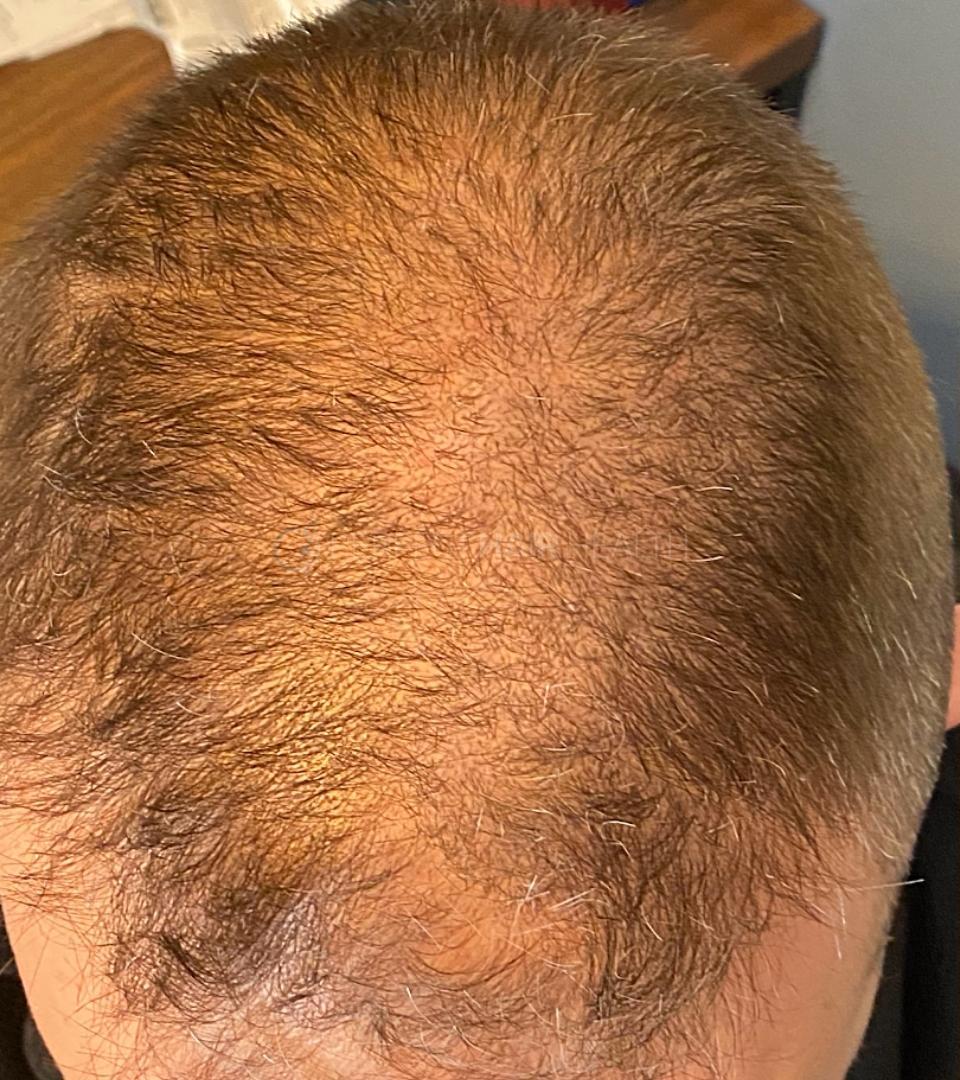
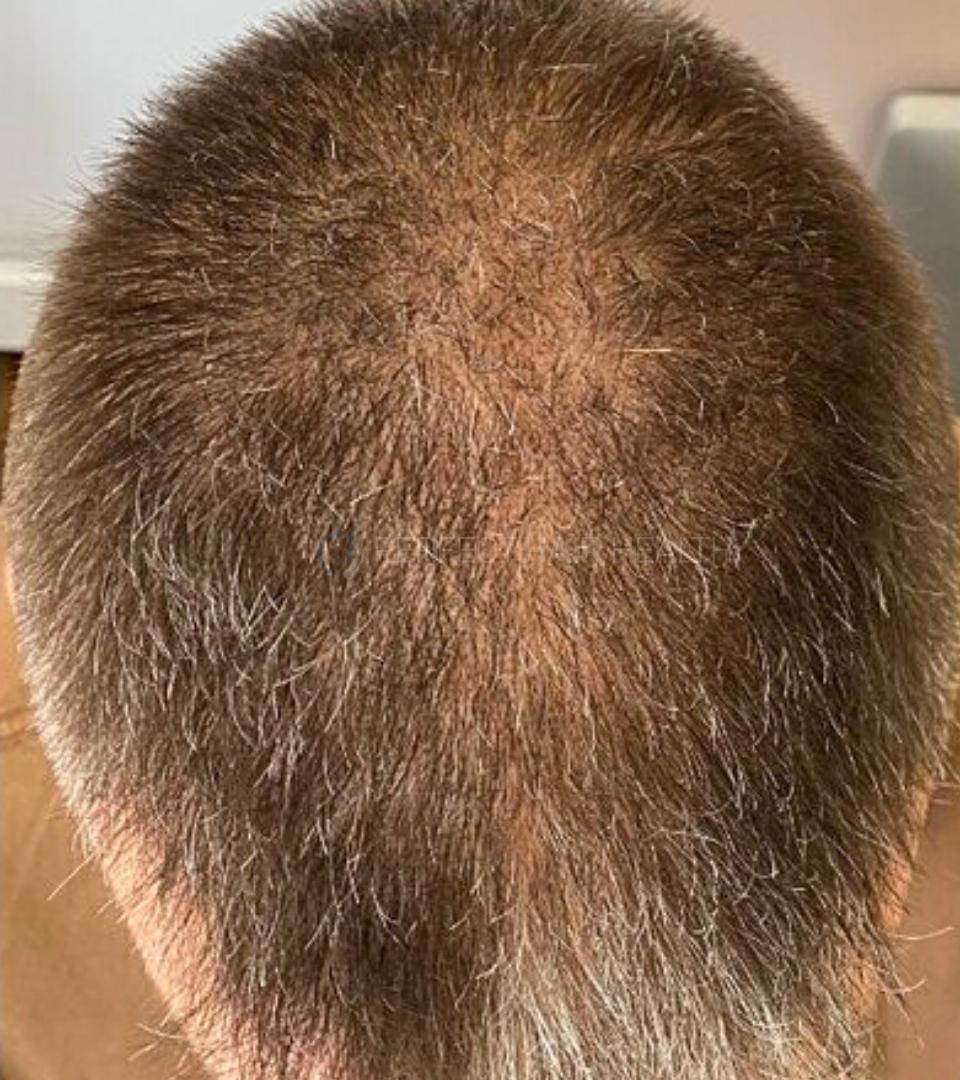 — Douglas, 50’s, Montréal, Canada
— Douglas, 50’s, Montréal, CanadaWant help with your hair regrowth journey?
Get personalized support, product recommendations, video calls, and more from our researchers, trichologists, and PhD's dedicated to getting you the best possible outcomes.
Join Now - Mission Statement